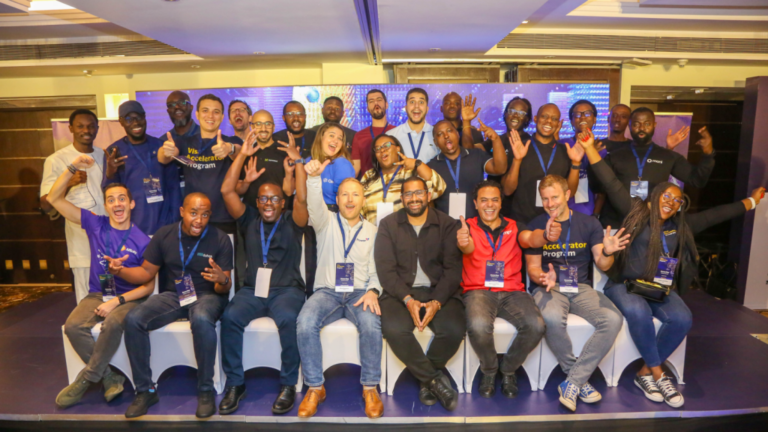Uganda is in the spotlight as the country’s startups entice YC and Google

Until now, the African startup ecosystem has been dominated by Nigeria, Kenya, South Africa, and Egypt (‘the Big 4’), countries that continue to receive the majority of venture capital and other forms of investment.
However, the situation appears to be gradually changing as notable startups emerge from other countries on the continent and investors look for new opportunities to spread their risk outside of the Big 4.
Uganda is one of the countries making waves in high-profile tech programs such as the Y Combinator accelerator and Google’s $50 million Africa Investment Fund, which was launched in October last year and is aimed at early and growth-stage startups.
SafeBoda, Uganda’s multi-service and digital payment technology platform, became the continent’s first startup to receive investment from the Google fund in December 2021. It is now joined at the table of nobility by Numida, the country’s first startup to be accepted into YC (W22). Numida joins 14 other African startups in the Winter batch of the accelerator, putting them on the radar of Silicon Valley investors.
“Being able to engage with people who have successfully built very large companies and succeeded, and receiving their feedback, especially at our stage…very that’s relevant to us,” said Numida co-founder and CEO Mina Shahid about joining the YC in an interview with TechCrunch.
Numida’s star has been shining since it received $2.3 million in seed funding last year. According to Shahid, the startup provides risk-based credit to micro-businesses in Uganda and has grown 30 percent month on month since its launch, fueled by the demand for quick business loans.
The credit limit at Numida is $3,500, but the amount extended to small businesses and the interest rate paid are determined by the risk profile of the loanees. The fintech company intends to enter Ghana later this year.
Funding
Aside from these two significant announcements, the Ugandan tech scene is thriving, with startups emerging in the mobility, e-commerce, e-health, cleantech, and fintech spaces, attracting a diverse range of investors.
According to the Partech report, the country was one of the top 15 in Africa that received significant equity funding last year.
Tugende, an asset financier with operations in Kenya, received a $17 million debt investment in December, following a $3.6 million Series A extension round earlier in the year from notable investors such as Mobility 54 Investment SAS, a corporate venture capital subsidiary of Toyota Tsusho Corporation, and CFAO group. Tugende, founded in 2012 by Michael Wilkerson, offers a lease-to-own plan for motorcycle taxis, a popular mode of transportation in Uganda. It also makes loans to people who want to buy other income-generating assets such as boats, cars, and retail equipment.
Still in 2021, Mobility 54 partnered with DOB Equity and InfraCo Africa to invest $3.4 million in electric motorcycle startup Zembo, which also operates battery charging and swapping stations throughout Uganda’s capital, Kampala – a business that appears promising as the country’s adoption of electric motorcycles grows.
Another startup, Ensibuuko, received $1 million in seed funding from FCA Investments last year. Gerald Otum founded the startup in 2014, and its proprietary digital infrastructure assists organizations such as credit unions and savings groups in automating their operations.
As things stand, the mobility and fintech industries stand to benefit the most from this funding boost. The motorcycle taxi category, a popular mode of transportation in the East African country, has gotten a lot of attention in mobility tech.
It is estimated that over 200,000 motorcycle taxis operate in Uganda’s capital, Kampala, where residents use them to avoid perpetual traffic jams. Multi-service apps such as Bolt, Uber, and SafeBoda are already present in the motorcycle ride-hailing and delivery market.
The e-commerce industry in Uganda is also rapidly expanding, with a 2021 study by the country’s ICT department predicting that revenue from the sector will more than double to $421 million by 2025, with user penetration reaching 29.1 percent. Some companies, such as SafeBoda, have already altered their strategic plans to capitalize on the sector’s uptick.
SafeBoda’s strategy has evolved from a single service provider to an integrated multi-service super-app offering ride-hailing, online shopping delivery, and payment (pay bills, send and receive money) services in recent years. The Gojek (GoTo)-backed super app, which is also available in Nigeria, has its sights set on other markets.
“We are building a global product that will go beyond East Africa,” SafeBoda co-founder and CEO Ricky Rapa Thomson told TechCrunch recently.
Meanwhile, as Uganda’s tech ecosystem matures, fueled by the country’s youthful population and rising smartphone penetration, tens of startups from across the continent have expanded into the country in search of new growth opportunities.
In October of last year, mPharma, a Ghana-based e-health scaleup that recently raised $35 million, entered the Ugandan market by acquiring a 55 percent stake in Vine Pharmacy, one of the country’s largest pharmaceutical retailers. Kenya’s B2B marketplaces Marketforce and Sokowatch, as well as e-commerce platform Copia and Nigeria’s MaaS startup Treepz, have already established themselves in Kampala. A dozen other companies, including Kenya’s logistics startup Amitruck, are also looking to enter the market.
Uganda is one country to keep an eye on this year as activity resumes across all sectors, boosted by the recent lifting of lockdowns, including the world’s longest Covid school shutdown.







